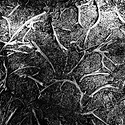relistan
Member
Every film currently in the mainline manufacturers' lineup was optimized to work well with D-76. They had to be because this is what almost any commercial lab was using for a long, long time. So the answer as a starting point for any film when asked "what is a good developer?" should probably be D-76/ID-11. You will be guaranteed box speed and good all around performance. So that's one approach.
Another is: "I have this developer and I love it on all these other films and wouldn't it be interesting to see how it is with film X". In that case, use it, see what you think.
Another approach is: "I like a simple, repeatable process, and a one shot developer is my jam". And in that case, you should use one that you like and change it out if you don't like it with that film. Or use the one recommended by the manufacturer.
Another approach is: "I like the results that X got with this film and I'd like to see if I can get something similar". And in that case you should do use the same process and chems, etc.
But essentially there is no right answer. And the good news is that there is also no wrong answer. It's all about the results you want and whether or not you get them.
Another is: "I have this developer and I love it on all these other films and wouldn't it be interesting to see how it is with film X". In that case, use it, see what you think.
Another approach is: "I like a simple, repeatable process, and a one shot developer is my jam". And in that case, you should use one that you like and change it out if you don't like it with that film. Or use the one recommended by the manufacturer.
Another approach is: "I like the results that X got with this film and I'd like to see if I can get something similar". And in that case you should do use the same process and chems, etc.
But essentially there is no right answer. And the good news is that there is also no wrong answer. It's all about the results you want and whether or not you get them.










 I like this idea
I like this idea

